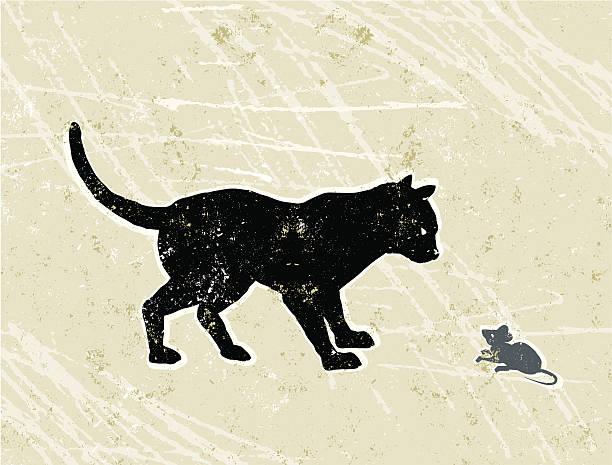Sam the rat woke up and began his daily journey in search of food. His smell indicates that this is an area inhabited by a cat, as he can clearly smell its urine. Sam is alive today because his ancestors millions of years ago learned to warn the areas inhabited by cats. This smell, etched into his brain and embodied by his survival instincts, usually activates the danger situation, but not today.
Today, Sam is feeling very brave and emotional. This rat feels longing for this cat and wants to meet her. He feels a strange and emotional feeling for this cat. Today was Sam’s last day on this planet, as his strong feelings for this cat led him towards it, making it an easy meal for her stomach. As soon as the cat devoured this strange rat, a new journey began for the organism that caused this rat’s death. This simple killer organism is a tiny parasite that was discovered in 1908 and was given the name Toxoplasma gondii.
In 1994 researcher Joanne Webster of Oxford University noted that some rats behave very strangely towards their archenemy (the cat). It makes sense that rats would run away from cats, but what I noticed was quite the opposite, as rats infected with Toxoplasma gondii were strangely suicidal towards cats.
What is this microscopic organism that makes the rat go towards its death?
What we know about this parasite “Toxoplasma” is that it can only reproduce within the digestive system of cats, and therefore the source of the parasite is cats and the fate of its survival depends on the cats. This does not mean that this parasite is found exclusively in the intestines of cats, on the contrary, it is very widespread, but it can only reproduce within the digestive system of cats. When a cat defecates, millions of cells of Toxoplasma are in the feces, which in turn enters the life cycle through soil or water pollution, and thus is picked up by other organisms.
In short, the spread of this parasite is very large among living things, as the number of human hosts is estimated at 3 billion people.
In 2011, researcher Robert Sapolsky of Stanford University and a group of researchers examined 18 rats infected with the parasite Toxoplasma gondii versus 18 uninfected rats and monitored their nervous system as they reacted to the smell of cat urine. In the normal state, rats have evolved over millions of years to avoid the smell and urine of cats because the cat is one of the most common predators of rats. Rats infected with the parasite showed strange reactions, as the department responsible for sexual stimulation activated it when they smelled the cat’s urine, and these rats were trying to approach the cats as if they were trying to attract a sexual partner.
It is not clear how the parasite succeeds in controlling the rat’s brain, but some research conducted in 2014 indicates that the parasite stimulates the brain connections associated with the sexual process and emotional relationships and changes the DNA inside the cell so that it suspends the work of some genes responsible for stimulating hormonal secretions related to the sexual process. This means that a rat infected with this parasite is reprogramming its nervous system so that it feels sexually aroused towards cats.
This change in the nervous system continues even after the parasite has been removed from the body.
So the parasite is excreted from the cat’s body through its excretion with the faeces of the digestive system. When the parasite is picked up by other organisms it enters through the mouth (in one way or another). This parasite interacts with the organism’s nervous system and controls the neural network responsible for sexual polarization and makes cats smell stimulating and positive in the host organism.
The effect of this parasite on humans is still being researched, but many researchers in this field believe that the changes that may occur to humans may be permanent changes. Some preliminary studies link some brain diseases, such as schizophrenia – schizophrenia, to infection with the parasite Toxoplasma.
In some studies, changes were observed in the part of the brain responsible for emotions such as anger, jealousy, fear and other instincts responsible for controlling instinctive emotions. Although this research is still not conclusive, there is a correlation between people who commit suicide and infection with this parasite, as some of its effects on the human body are activating the immune system to secrete enzymes that reduce the proportion of serotonin, which leads to depression. There is also some evidence of high feelings of jealousy and distrust of others in males, and blind trust and exaggerated obedience in females.
Also, one of the changes that occur in the human body and related to the nervous system is a noticeable slowness in the speed of reactions, as some experiments were conducted on about 3890 soldiers infected with the parasite in the Czech army and they were followed up over a long period of time, and it was noted that the probability of their exposure to traffic accidents (driving a car) 6 times more than people without the parasite.
In 2011, 34 students (male and female) were tested for the parasite compared to 134 non-infected students. The test consisted of evaluating the smell of cat urine in terms of bad smell, and the result was that the infected people rated the smell more positively than the uninfected people. Interestingly, the infected females within the experiment found the smell more bad than the uninfected males, meaning that the effect was opposite between the sexes (males and females). These experiments indicate that the effect of this parasite on the human body is not far from its effect on the body of rats, but we are still far from understanding all the changes that occur because of it.




